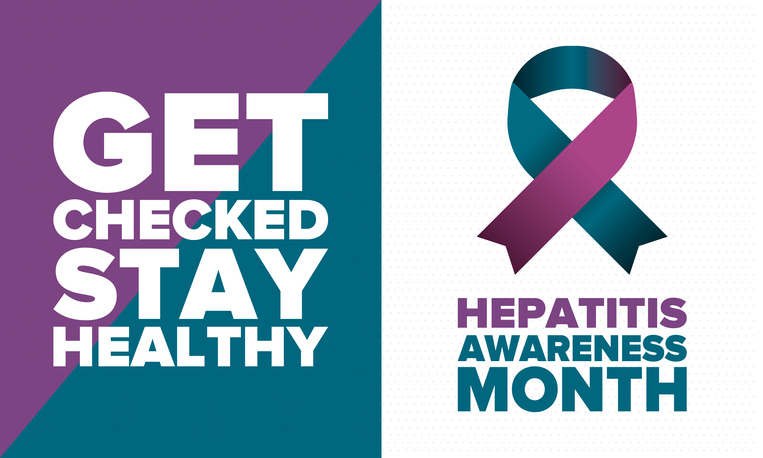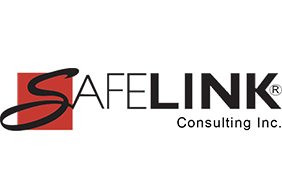The month of May is designated as Hepatitis Awareness Month in the United States. Throughout the month, federal, state, and local public health partners work to shed light on the impact of this silent epidemic by raising awareness of viral hepatitis. The goal is to improve the overall understanding of transmission, risk factors, and help to decrease the social stigma surrounding this disease.
Viral hepatitis is a serious public health issue that affects millions of people around the world. There are several different types of viruses that can cause hepatitis; however, the most common types of viral hepatitis are hepatitis A, hepatitis B, and hepatitis C. All types of viral hepatitis target the liver and can cause serious liver damage, including liver cancer.
Hepatitis A is a contagious liver infection that is found in the stool and blood of people who are infected so they can spread it to someone who ingests the virus. That’s usually through eating contaminated food or drink or through close contact with an infected person. This virus is very contagious and can even be spread before the infected person shows symptoms.
Hepatitis B virus is of most concern to employers and employees who work around blood or other potentially infectious materials. The Occupational Safety and Health Administration’s Bloodborne Pathogen Standard requires employers who are covered under this standard to educate their employees on the risk of infection and if it includes Hepatitis B, then to offer them within 10 days of hire the Hepatitis B vaccine at no cost to the employee. Even though there is no cure for Hepatitis B there are treatments available that can delay or reduce the risk of developing liver cancer.
Hepatitis C has been on the rise among young adults. Hepatitis C can be a short-term illness, but CDC states that for more than half of people who become infected it becomes a long-term, chronic infection that can lead to liver disease and liver cancer. CDC reports that Hepatitis C can also be spread through health care exposures, sex with an infected person, birth from an infected mother, and tattoos and body piercings from unlicensed facilities or information settings.
Addressing the Stigma
One of the biggest challenges in addressing hepatitis is the stigma that surrounds the disease. Many people believe that hepatitis is only transmitted through risky behaviors like IV drug use or unprotected sex. However, viral hepatitis can also be transmitted through contaminated food or water, or through exposure to infected blood or body fluids. It is important to understand that anyone can be at risk, regardless of their lifestyle or behavior.
Increasing awareness is crucial to reducing stigma and improving outcomes for people living with the disease. Education campaigns, such as this, can help dispel myths and misconceptions about viral hepatitis and provide accurate information about how the disease is transmitted, diagnosed, and treated. Employers can help by raising awareness to their employees during May Hepatitis Awareness Month or on World Hepatitis Day which is annually on July 28th. According to OSHA, employers who must comply with the Bloodborne Pathogen Standard must offer the Hepatitis B vaccine to employees as a part of their Exposure Control Plan. Every Category I worker must be offered the Hepatitis B vaccine and their acceptance or refusal documented. Contact SafeLink Consulting to get help writing this plan.
A Silent Epidemic
Millions of Americans from all walks of life are living with hepatitis, and most don't know that they have it. Hepatitis is often referred to as a silent epidemic because many people who are infected with the virus are not aware of their infection. This is because the symptoms can be mild or nonexistent in the early stages of the disease. As a result, many people with hepatitis may unknowingly spread the virus to others, leading to a higher prevalence of the disease.
Common Misconception
A common misconception is that hepatitis is a death sentence. While viral hepatitis can be a serious illness, it is important to remember that early diagnosis and treatment are key to preventing liver damage and other complications. Both hepatitis A and hepatitis B are preventable with safe and effective vaccines, and hepatitis C is curable with prescribed treatment.
Testing and Vaccination
The CDC recommends that every adult get tested for hepatitis B and hepatitis C at least once in their life, that pregnant women get tested during each pregnancy, and anyone with ongoing risk and certain medical conditions get tested. Getting tested is the only way to know if you have hepatitis B or hepatitis C.
There are vaccines available for hepatitis A and hepatitis B. The CDCs Advisory Committee on Immunization Practices (ACIP) recommends that all infants, unvaccinated children, adults aged 19 through 59 years, and adults over the age of 60 with risk factors get vaccinated against hepatitis B. Currently, there is not a vaccine available for hepatitis C, however, most people can be cured with proper medical treatment.
Working Together
By increasing awareness and reducing stigma, we can ensure that everyone has access to the information, care, and support they need to prevent and manage viral hepatitis. Whether you are living with hepatitis or simply want to learn more, there are resources available to help you stay informed and connected. Let's work together to end the misinformation and improve the outcomes for people living with this disease.
Learn more about how workplace safety training can save your business time and money.
Get help in developing a customized written Health & Safety Program to assist with OSHA Compliance.
Need an employee Health and Safety Manual for your business to assist in meeting OSHA requirements? Contact SafeLink Consulting for customized safety programs specific to your industry.
Learn more about what SafeLink Consulting can do to help your business with compliance services, including safety compliance, to meet OSHA training requirements and quality system consulting to meet FDA compliance. SafeLink Consulting assists businesses with workplace safety training, infection control training, HIPAA training online, quality systems, assessments, audits, due diligence, and more.
Industries include:
Dentistry compliance - assisting the dental practice with meeting requirements for OSHA, HIPAA, EPA, and CDC guidelines, patient safety and employee health & safety
Dental Laboratory compliance - assisting the dental lab with meeting requirements for OSHA, FDA, and CDC guidelines, employee health & safety, plus FDA requirements for lab manufacturing custom implant abutment /gmp for medical device manufacturers
Medical Device Manufacturers compliance - assisting with meeting OSHA compliance & FDA requirements, GMP - good manufacturing practices
General Industry compliance - assisting with OSHA compliance and FDA compliance as it pertains to the specific business
Beverage Industry compliance - assisting beverage businesses such as the craft brewery, winery, cidery, distillery, vintner with meeting OSHA compliance, health & safety, FDA requirements / GMP - Good Manufacturing Practices
Get notification when new regulatory compliance training courses are available plus upcoming news and events by subscribing to our email news.







Leave Comment